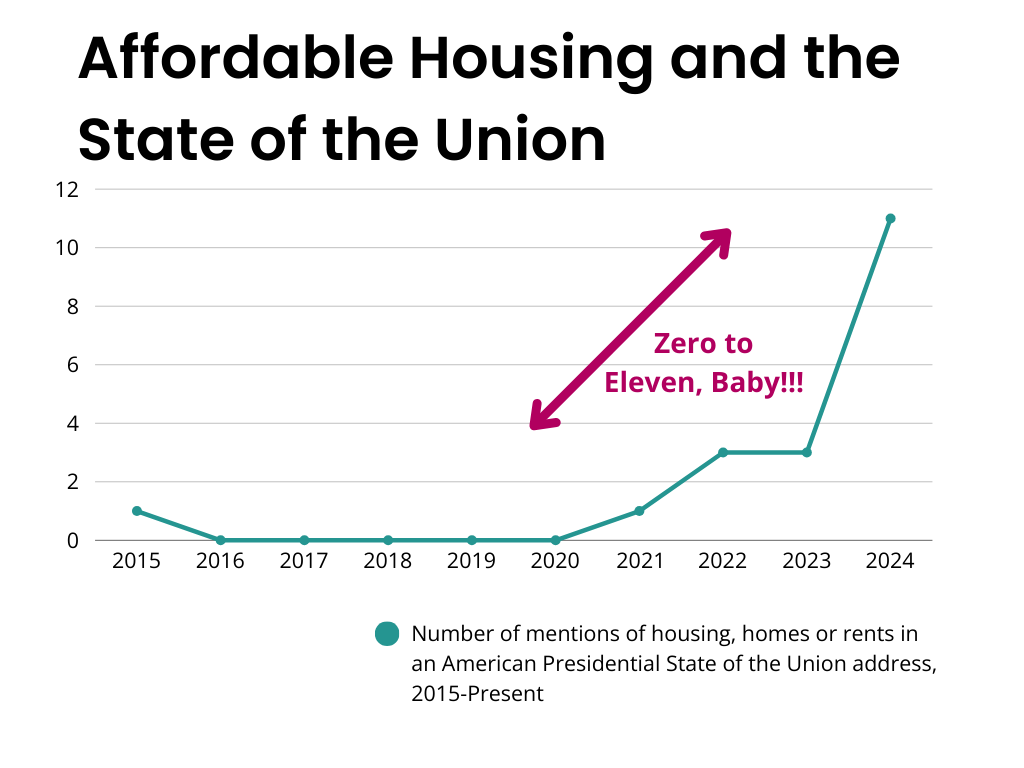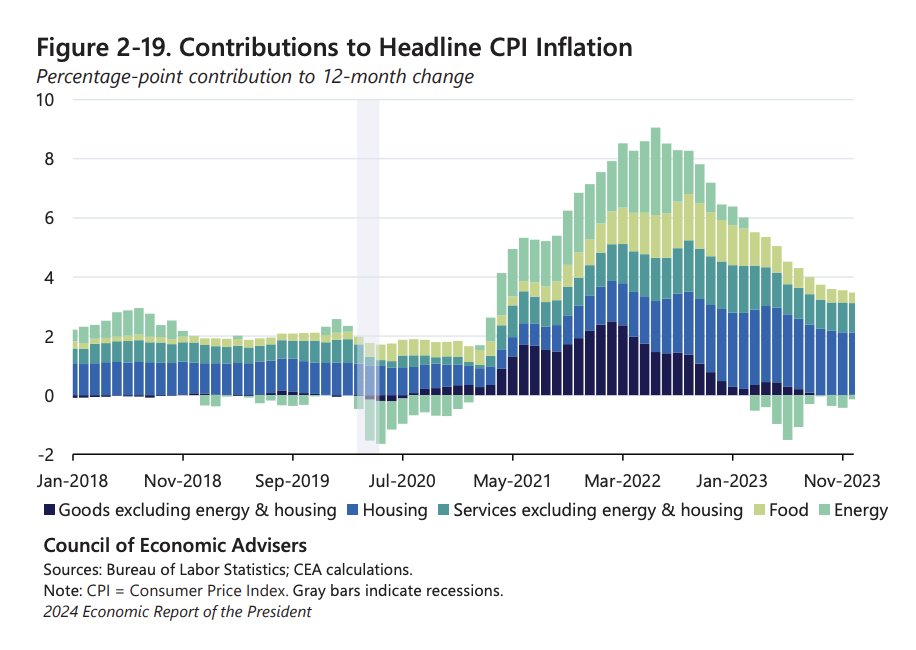The FWD #205 • 584 Words
Recent remarks from the President point toward a hot issue for the 2024 election: housing affordability.
In this year’s State of the Union address, the President referenced affordable housing eleven times—that is a significant record! Even better, it was the first time in more than a decade that actual policy prescriptions were described. (To be precise, it was just two paragraphs, but that’s more than zero.)

So what makes a president and their team elevate a topic for the State of the Union? You only have to look at the first two lines of Biden’s SOTU affordable housing segment: “I know the cost of housing is so important to you. If inflation keeps coming down, mortgage rates will come down as well. But I’m not waiting.”
The President is running for reelection, lest we forget. While inflation is cooling, significant increases in the costs of goods remains a major challenge to voters’ approval of his administration. And as we’ve covered previously, housing costs have been a big driver of inflation.
Inflation has slowed, but Americans remain pessimistic.
One of the most pressing issues for President Biden’s messaging strategy is how to convince voters that the economy is, in fact, on the upswing. One reason this has been so difficult is the cost of housing.
A recent Redfin poll found that housing affordability will influence how 53% of likely voters will cast their ballot in the upcoming presidential election. Two-thirds of respondents said they feel negatively about the economy in part because of housing affordability.
These feelings are shared across demographics. For example, in November 2023 UnidosUS polled likely Latin American voters and found that “3 out of 4 Latino respondents said their concerns about inflation come directly from the high cost of housing, and 6 out of 10 respondents are considering relocation due to high and unaffordable housing costs.”
Even though eggs and milk cost less than they did a year ago, housing costs—often the biggest part of a family’s budget—are still increasing. In 2023, inflation increased by 3%, but housing costs increased by 6.5%. In fact, housing has been the primary contributor to CPI inflation for over a year now. For many voters, housing is probably the only measure of economic prosperity that matters.

Housing is here to stay.
While some might feel Biden’s policy prescriptions of late are too incremental or misguided to significantly improve housing production and affordability, how much Americans pay to rent or buy their homes will likely remain an issue of interest to the federal government in the coming years.
If the economy—or public sentiment about the economy—is to be a deciding factor in this year’s election, then housing matters acutely. If campaigners want to help Americans in their pocketbooks, they will have to promise to lower housing costs.
That appears to be exactly what the Biden campaign aims to do, according to a Vox article published this week. Conversely, short of a curious suggestion to develop “Freedom Cities” on federal land, former President Trump has not yet offered specific housing solutions on the campaign trail. For now, we have to rely on his administration’s record and comments from the previous 2020 campaign to predict how the presumptive Republican nominee might approach housing policy.
So if your stomach can handle it, keep an eye out for both political parties’ convention speeches this summer to see if housing gets its due. If it does, hang onto your housing hats these next four years—it should be a wild ride.
